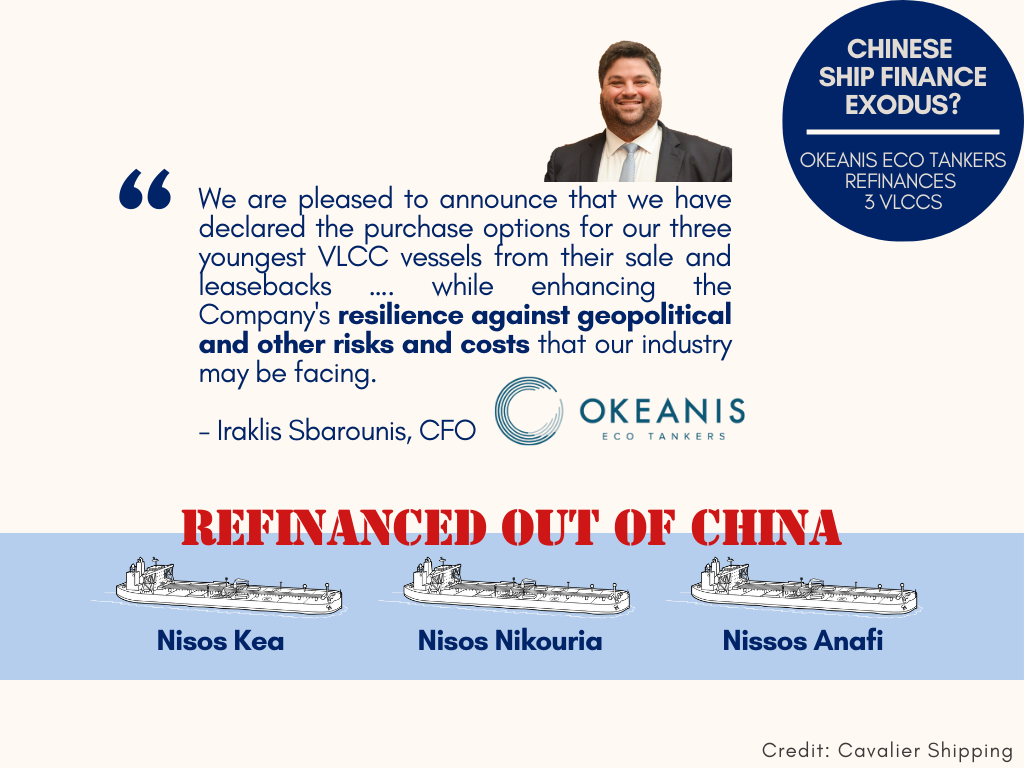Ship Finance’s $100 Billion Question: Will Chinese Leasing Structures Survive U.S. Scrutiny?
If you’ve worked in ship finance over the past decade, you’ve seen the dominant trend of European banks scaling back their shipping portfolios. New sources of debt capital have come into the market to fill the void—none more so than Chinese leasing companies.
Chinese lessors have ~$100 billion of shipping assets in their portfolio today, which accounts for more than 15% of the global ship finance market.
However, the U.S. Trade Representative’s (USTR) proposed measures to counter China’s maritime dominance could stand to curtail (and perhaps even reverse) this growth.
In the USTR’s proposed measures, Chinese-owned vessels calling at U.S. ports get the most punitive fees. And in Chinese leasing structures, vessels are technically “owned” by Chinese leasing companies.
So if you’re a shipping company that uses a Chinese leasing structure to finance your fleet but otherwise has no ties to China, what are you to do?
New York-listed, Greek-headquartered tanker company Okeanis Eco Tankers (OET) proactively refinanced their three youngest VLCC vessels, shifting their leasing from China Merchants Bank to a Greek bank.
Implicit in OET CFO Iraklis Sbarounis’ statement is the rationale for the transaction:
"We are pleased to announce that we have declared the purchase options for our three youngest VLCC vessels from their sale and leasebacks …. while enhancing the Company's resilience against geopolitical and other risks and costs that our industry may be facing.”
As Sbarounis continues, see if you notice the country that is conspicuously absent as he highlights where their vessels are built:
“We are confident that our modern fleet, comprised of vessels built at quality shipyards in South Korea and Japan, strategically positions us in line with our vision to be the platform of choice within the crude tankers market for investors and all stakeholders.”
With the USTR’s proposed measures in play, shipping companies with Chinese financing will follow OET in revisiting their relationships with Chinese leasing companies.

